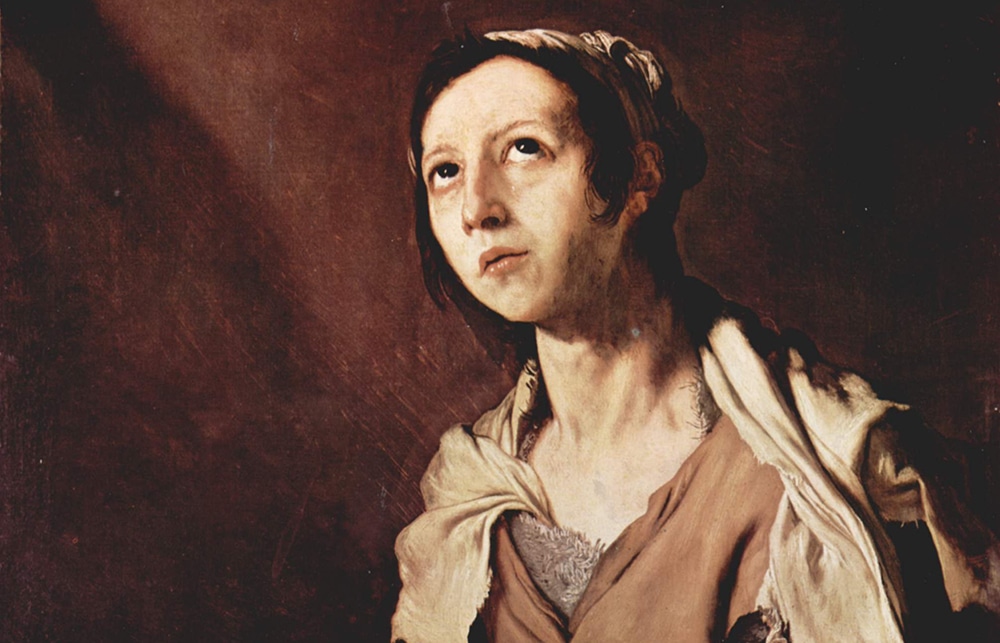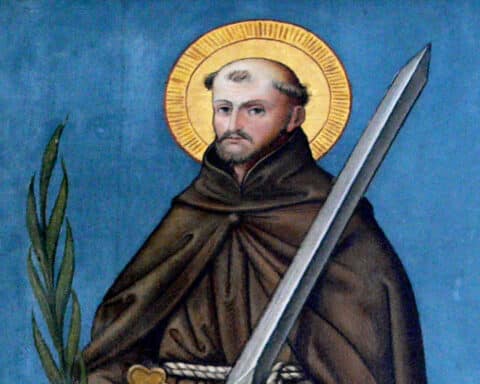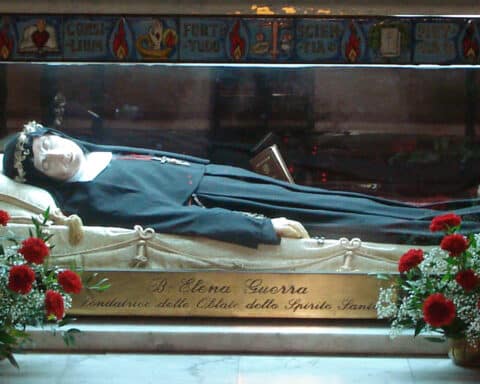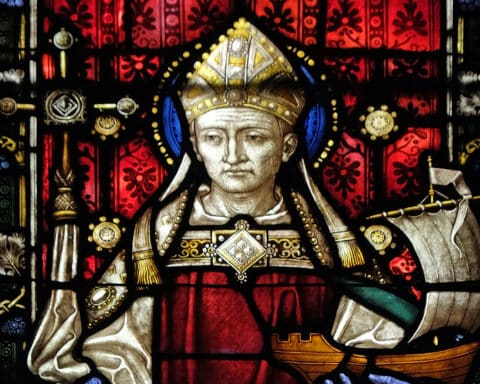Ask any Catholic to name a sinner who became a great saint and most will answer, “St. Augustine.” As a teenager, Augustine abandoned the Catholic faith for the pagan Manicheans sect, and took a mistress; they lived together for 17 years and had a son. Without meaning to diminish in any way the seriousness of Augustine’s actions, compared to other saints on the calendar, St. Augustine’s sins are pretty tame.
Let’s look at a few I like to call, “The depravity all-stars.”
St. Mary of Egypt
At age 12 Mary (c.344-c.421) ran away from home to Alexandria, the most exciting city in the Roman Empire. She became an accomplished seductress, who took special pleasure in corrupting innocent young men. Once, on a whim, she joined a pilgrimage to the Holy Land. By the time the ship reached its destination, Mary had seduced the entire crew and all of the pilgrims. In Jerusalem she realized the enormity of her sins, went to confession, then spent the rest of her life as a hermit in the desert. Feast day: April 2.
St. Olga
When a neighboring tribe assassinated her husband, Olga (c.879-969), princess of Kiev, went to war. She massacred virtually the entire tribe; the few who did survive she sold into slavery. Years later, while in Constantinople to make an alliance with the emperor, Olga visited a church and was in awe of the magnificence of the liturgy. She took instruction, was baptized and returned to Kiev, zealous to convert her people. Hardly anyone would listen to her. Even her family rejected Christianity. Olga died believing that as a missionary, she was a failure. Feast day: July 11.
St. Vladimir
Olga’s grandson Vladimir (956-1015) became prince of Kiev by murdering his older brother. Then he raped his sister-in-law and added her to his harem of several hundred women. To consecrate a new temple to all the gods, he sacrificed a father and his son. When the emperor at Constantinople sought his help in putting down a rebellion, Vladimir demanded as his reward the emperor’s sister as his wife (actually, the unhappy woman would be Vladimir’s eighth wife). The emperor countered that Vladimir must convert to Christianity. Everyone suspected that once he was back in Kiev, Vladimir would return to his old ways, but the grace of baptism changed him. He dismissed his extra wives and his harem, tore down the pagan temple, and launched a vigorous campaign to convert his people. The faith his grandmother planted flourished under Vladimir. Feast day: July 15.
St. Thomas Becket
As chancellor of England under Henry II, Thomas Becket (1118-1170) became obscenely wealthy. His wardrobe was larger and more expensive than the king’s. He even had his own private navy. In spite of all his wealth, Becket was cold-hearted and never gave anything to the poor. All that changed after Becket was consecrated archbishop of Canterbury. He gave away all his possessions. He welcomed the poor at his table. And he became a champion of the independence of the Church, for which he was murdered in his own cathedral by four of King Henry’s knights. Feast day: Dec. 29.
St. Philip Howard
Son of one of the wealthiest noble families in England, Philip Howard (1557-1595) could afford any pleasure he liked — and he liked them all. At court he was a notorious playboy, gambler and fop. He ran up enormous debts, then sold off his wife’s property to settle them. On one occasion he said publicly that he did not really consider himself to be married. In 1581, he joined other members of the court at the Tower of London to see a debate between several Anglican ministers and a prisoner, the Jesuit priest St. Edmund Campion. Although the ministers were armed with books and assistants, Father Campion was alone and had only his memory to rely on, yet he did so well in the debate that the government canceled them before a verdict was rendered. Inspired by Father Campion, Howard reconciled with his wife, and they both returned to the Catholic faith.
When they tried to leave the country secretly for the Continent, where they could practice Catholicism freely, they were stopped and Howard was imprisoned in the Tower of London. He died there 10 years later. Feast day: Oct. 19.
Thomas J. Craughwell is the author of “Saints Behaving Badly” (Doubleday Religion, $15.95) and “Patron Saints” (Our Sunday Visitor, $11.95).





